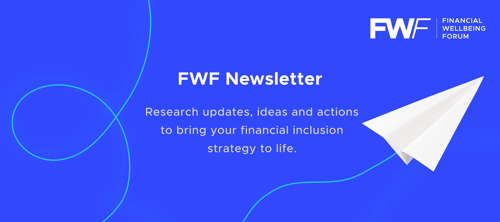Work and money are intrinsically linked; however, it might not be immediately obvious how financial concerns and fears of scarcity can directly affect work performance. With the backdrop of the ongoing Cost of Living Crisis fears of financial scarcity have become rife, which is unsurprising in an environment where people’s incomes are struggling to keep up with their outgoings. People from all walks of life have felt the pressure of their finances of late, however, the squeeze has been particularly felt by individuals and families on low-incomes. These worries can often generate a knock-on effect on mental health and wellbeing, as well as workplace performance.
But how can a scarcity mindset, particularly one based around money worries, hold employees back from giving their best performance in the workplace? Here are some of the ways in which this manifests itself in the work environment.
Absenteeism
An increasing amount of external research confirms a correlation between absenteeism and financial stress.
In a recent piece of research into how Wagestream’s members use flexible pay to support their budgeting and manage their finances, we discovered that 22.1% of people use it to cover the cost of their commutes.
This finding highlights a universal expense that is often overlooked. Internal policies and benefits are usually built to support colleagues in the workplace - whether that's equipment allowances, food and drink, or discounted merchandise; however, do those policies support your colleagues to reach the workplace in the first place?
The difficulties and expense that the work commute presents may not be immediately apparent to those who work a 9-5 office job, where transport options are far more varied and available; however, deskless workers are often working unusual shift patterns, evening and night shifts, and public holidays - and can be left short of choice. Take a nurse who is working the night shift at a hospital, finishing in the early hours, which potentially leaves a taxi home as their only transport option - this is where the cost of commuting becomes a burden, and absenteeism becomes a viable option to tackle fears of financial scarcity.
Key takeaways
73%
Financially-stressed workers are more likely to move to an employer who cares about their financial wellbeing
62%
Employers do not have a well-articulated financial wellbeing strategy
Adoption
of benefits is a useful measure for how staff are feeling and what they need most from their employer

Personal development
Personal and professional development is an essential element of career progression - and can take on many forms: mentorship, online education, skills-based courses, upskilling programmes, and so on. Often, these are naturally folded into the work environment and there isn’t a cost attached, however, there are certain career trajectories that might require extra investment (of time and money - both expensive commodities for full-time workers) to achieve.
Take an employee who has a career in customer support, but has ambitions to move into a more technical support role, which requires knowledge and training of more complex systems. A scarcity mindset could hold this employee back from investing their time, money, and energy into upskilling themselves for this role, as they may find it difficult to justify this investment alongside essential everyday costs. Thus, this worker becomes trapped in a cycle where fears of financial scarcity hold them back from upskilling and increasing their earning potential.
Negotiation power
Negotiating pay is often seen as a challenging subject, regardless of industry, role, and seniority - and can give rise to all sorts of anxieties - imposter syndrome, fear of rejection, cultural and gender biases, all of which can play a role in holding an employee back from valuing their worth and advocating for themselves.
Fears of financial scarcity add an extra dimension to these considerations - where potential anxieties extend beyond the psychological , and into the more tangible, namely financial implications. A worker with a valid business case for why they should receive a promotion or pay increase, but who is also overcome with a scarcity mindset, could hold back from having these conversations out of fear of sabotaging their income. For example, fears of losing their job, damaging relationships with superiors, or disqualifying themself from future opportunities. Much as with personal development opportunities, fears of financial scarcity which drive these behaviours in the workplace can indirectly be the cause for an individual capping their own earning potential.
Want more guides and resources like this, sent straight to your inbox?

Physical and mental health
All forms of wellbeing are linked, the mental, the physical, the financial, and so on. One of the more concerning statistics on this subject is from a study by Harvard University which concluded that financial stress can impact an individual by up to 13 IQ points when facing money worries. The significance of this is obvious when you note that 13 IQ points can take someone upwards from 'average' to 'superior' intelligence, or downwards to 'borderline deficient'.
Imagine an individual in your organisation who is suffering with money stress - and how their wellbeing and mental capacity might be impacted if they’re operating 13 IQ points below their baseline - this does not make for a happy workforce, and certainly not for company productivity.
Anxieties and concerns that burden the mind also naturally creep their way into the physical body, causing increased stress hormones, higher heart rates, weakened immunity and insomnia. And what happens when employees are so stressed that it begins to detract from their physical wellbeing? It circles us back to the issue of absenteeism; thus proving the hypothesis that happy and supported employees make for present and productive teams.
In short, fears of financial scarcity can extend far beyond the private and personal lives of staff members - there are many ways in which it manifests itself in their wellbeing, physical health, and productivity - therefore making it prudent issue for employers to address.
Limiting fears of financial scarcity as an employer
There is no perfect solution to supporting staff with their finances, and often it is the multi-pronged approaches, those which promote choice and flexibility, that are most valued by teams. Education obviously plays a huge role in building financial confidence in your workforce, as well as transparent and accessible money-adjacent policies (pensions, parental leave, sick leave, etc), to establish clarity and peace of mind for staff.
However, education and policies are not enough to create a winning financial wellbeing strategy; practical and interactive solutions are often more highly valued by teams, as these allow the creation of bespoke financial wellbeing toolkits which suit their needs. Flexible pay specifically is an essential tool when it comes to managing fears of financial scarcity, as it allows employees to choose when they get paid and manage budgeting and outgoings more simply. By providing flexible access to pay - the fear of a ‘lack’ that often drives the scarcity mindset can be mitigated.
